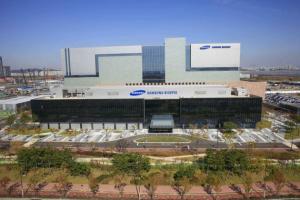
Samsung Bioepis said that the company has proved the quality control ability of its biosimilar that treats breast cancer, Ontruzant, to the original drug Herceptin in the fourth year of phase 3 clinical trial.
The company presented the data at a poster session during the American Society of Clinical Oncology (ASCO) 2020, which observed the incidence of symptomatic congestive heart failure (CHF) and asymptomatic significant left ventricular ejection fraction (LVEF) decrease.
Samsung Bioepis confirmed that during the follow-up period after adjuvant therapy, the incidence of LVEF decrease was similar between Ontruzant and Herceptin. The company also saw no symptomatic CHF, cardiac death, or other noticeable cardiac conditions in both groups during the follow-up period. Samsung Bioepis also continued to see comparable long-term efficacy in event-free survival (EFS) and overall survival (OS) in its fourth year.
At a median follow-up duration of 53 months, four-year EFS rates were 83.4 percent in Ontruzant and 80.7 percent in the Herceptin group. OS rates were 94.4 and 89.6 percent, respectively.
"The four-year follow-up results further support comparable safety and efficacy profiles of Ontruzant to reference drug Herceptin," Samsung Bioepis Vice President Han Seong-won said. "We hope these findings on long-term safety and efficacy help build confidence in the use of biosimilars for prescribers and patients."
In another poster study, Samsung Bioepis used the data from the Danish Breast Cancer Cooperative Group registry to assess the real-world efficacy of combining neoadjuvant chemotherapy with Ontruzant and pertuzumab in patients with HER2-positive early breast cancer.
As a result, 56 percent of patients achieved a pathologic complete response (pCR), and 68 percent of patients who were node-positive before receiving the combination of neoadjuvant chemotherapy -- Ontruzant and pertuzumab -- had tumor-free axillary nodes after completing treatment.
Samsung Bioepis’ poster sessions at ASCO came at a pivotal time for the company that launched the treatment in the U.S. on April 15.
MSD, the company's North American partner, began distributing the drug in the U.S. market by selling Ontruzant at a 15 percent lower price than that of Herceptin after winning U.S. Food and Drug Administration's approval in January last year.
Ontruzant is the second biosimilar Samsung Bioepis has introduced to the U.S. market to treat early breast cancer, metastatic breast cancer, and metastatic gastric cancer. Its original, Herceptin, is one of the world's most purchased medicines with an annual sale of $6.9 billion in 2015.

